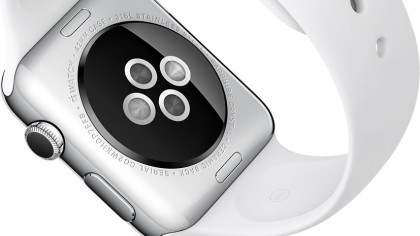Surprises are dead: Endless leaks and teasers are killing the joy of tech
The tech world just can't keep a secret

Did you read about LG's new G4 last week? I didn't. There was no point clicking on any of the official stuff, as the entire internet has spent the last six months analysing almost every single facet of the phone's external design and internal components, thanks to a non-stop campaign of leaks.
The actual announcement was an anticlimax, a formal dotting of the Is and crossing of the Ts that simply said "Yep, here it is, looking just like it was in those pictures that appeared on the internet two months ago, and with the exact same camera sensor that was rumoured to be included back in January." In fact, LG employees were openly showing off the handsets to people at the event before the conference even kicked off.
It's definitely not just LG. If feels as if most tech announcements now lack the element of surprise that they so often used to have. Most of the bare-bones stuff is outed beforehand, while the more fanciful rumours of exciting new and innovative features turn out to be wrong, leaving us with an official product that can't live up to the rumoured, half-right, half-wrong version.
The rumour mill always turns the same way. Someone guesses the stats of next year's flagship phone model, then some mystery benchmarks appear, then official specs come out, then a photo of the case, one of the back, a photo of the side, and finally – to make sure the official launch event is entirely pointless – the high-res promotional images appear on Twitter a fortnight before the announcement.
Sometimes you even end up in the bizarre situation where official company 'teasers' appear, only to hint at things we already know.
The only time anything more interesting than this tired old news cycle happened was when that iPhone was found in a bar. And lots of people got very angry about that because suddenly the usual drip-drip-rumour-rumour agenda wasn't being followed.
At a tech company such as LG, or HTC, or Sony, it's surely not that hard to say to people in possession of prototype hardware: "Hey, remember not to put it on any publicly viewable benchmarking sites or we'll take it back and sack you in the morning" as a way to stop leaks?
Get daily insight, inspiration and deals in your inbox
Sign up for breaking news, reviews, opinion, top tech deals, and more.
Diminishing returns
Not only is the leak-based news cycle diminishing the impact of new product reveals, it often feels as if it's being orchestrated by the smartphone makers themselves. I feel that the only alternative explanation could be that all the major tech companies are staffed by imbeciles who care more about their Reddit account status than their jobs.
You can see why I'm suspicious. Instead of one day of people talking about its LG G4, LG's had months of trickling out news stories about the thing, thanks to endless leaks of specs and photos. It's generated thousands of pages, lots of discussion and has surely raised the profile of the phone among the tech audience thanks to it being, well, everywhere, before it was even confirmed.
Of course, it would be ridiculous for us to not point out that it's good for the news sites as well. Smartphone rumours, particularly those based around such tedious facts as the number of screw holes around the case of the next iPhone or how long its headphone cable might be, keep the tech part of the internet alive.
Imagine a world in which there was no speculation about how the iPhone 7 might have a slightly more asymmetric power button placement this year, or how HTC's next model may also have the same camera unit as its last model according to the EXIF data someone found on a Taiwanese social site. What on earth would we read all day?
We'd have less to talk about for sure, but imagine an announcement containing an actual surprise. When did that last happen? The Apple Watch reveal in 2014 is the closest thing that I can recall, and even then we knew a lot about what was coming.

In the end, constant leaks are not going to help widen the audience for a product. Leaks keep the hardcore interested, but are only pandering to those in the know. People who read tech sites are, no offence Dave, in the minority when it comes to the entire world of potential shoppers.
If an official product launch is so spoiled by advance discussion it barely registers on the Richter scale of news, surely your mainstream buyer is less likely to hear about it? So, not for the first time on the internet, it's all one big waste of everyone's time.